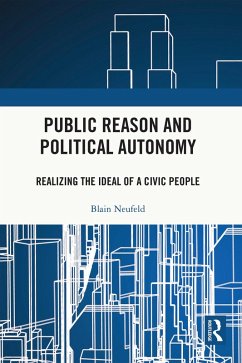
On Complicity and Compromise (eBook, PDF)

PAYBACK Punkte
11 °P sammeln!
'Taxpayers are complicit in the illegal wars waged by their governments.' 'Corporations are complicit in human rights abuses perpetrated by their suppliers.' 'Aid workers who compromise with militias are complicit in their reign of terror.' We hear such allegations all the time. Yet there are many ways of being mixed up with the wrongdoing of others. They are not all on a par, morally; some are worse than others. Furthermore, complicitly contributing to wrongdoing, while still wrong in itself, might nonetheless be the right thing to do if that is the only way to achieve some greater good. Draw...
'Taxpayers are complicit in the illegal wars waged by their governments.' 'Corporations are complicit in human rights abuses perpetrated by their suppliers.' 'Aid workers who compromise with militias are complicit in their reign of terror.' We hear such allegations all the time. Yet there are many ways of being mixed up with the wrongdoing of others. They are not all on a par, morally; some are worse than others. Furthermore, complicitly contributing to wrongdoing, while still wrong in itself, might nonetheless be the right thing to do if that is the only way to achieve some greater good. Drawing on philosophy, law and political science, and on a wealth of practical experience delivering emergency medical services in conflict-ridden settings, Lepora and Goodin untangle the complexities surrounding compromise and complicity: carefully cataloguing their many varieties; identifying the dimensions along which those differ; and explaining why some are morally more worrying than others. Lepora and Goodin summarize their analysis in a formula that can be used as a decision heuristic for assessing any given act of complicity. They go on to illustrate its practical usefulness by applying it first to some stylized philosophical examples and then, in a more sustained way, to two vexing cases of complicity in the real world: the complicity of humanitarian aid organizations with genocidaires controlling Rwandan refugee camps; and the complicity of physicians treating patients who are being subjected to torture. Both rigorous and rooted, this is a book for philosophers and practitioners alike.
Dieser Download kann aus rechtlichen Gründen nur mit Rechnungsadresse in A, B, BG, CY, CZ, D, DK, EW, E, FIN, F, GR, HR, H, IRL, I, LT, L, LR, M, NL, PL, P, R, S, SLO, SK ausgeliefert werden.













